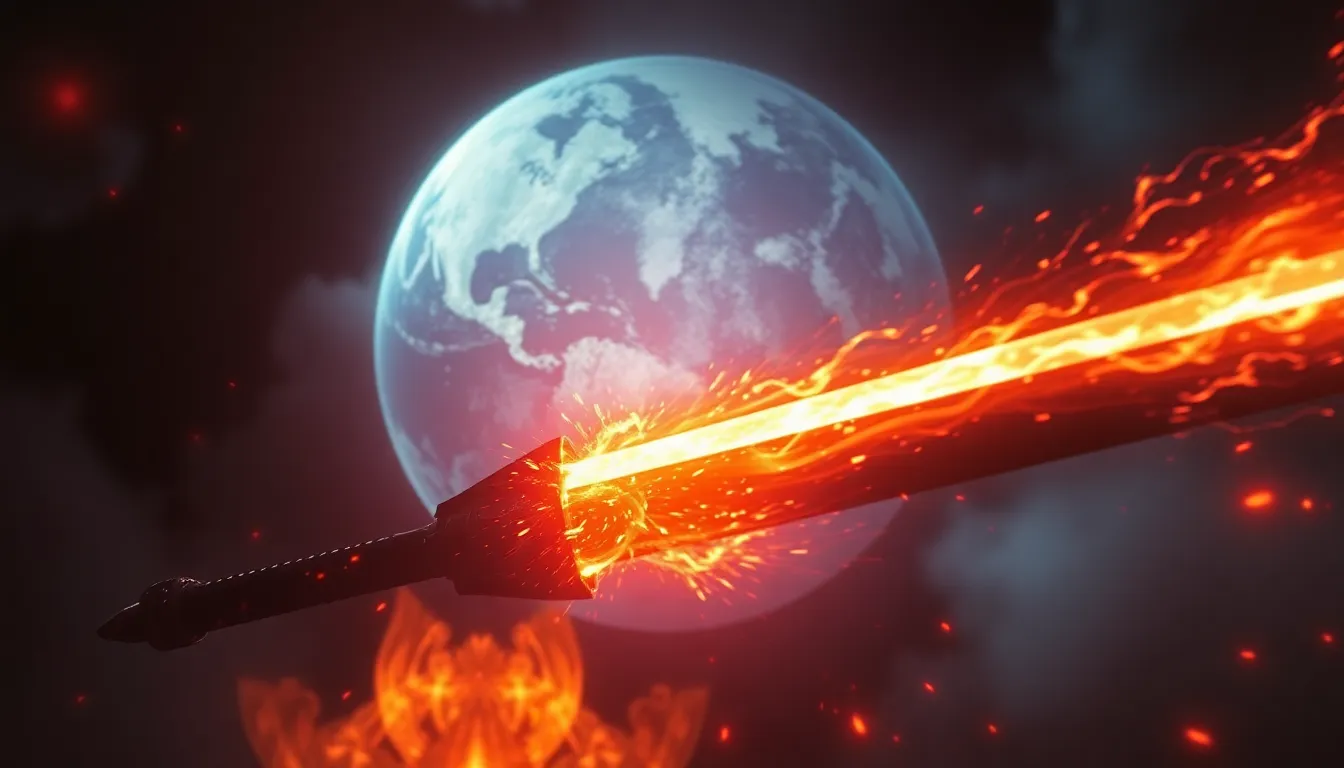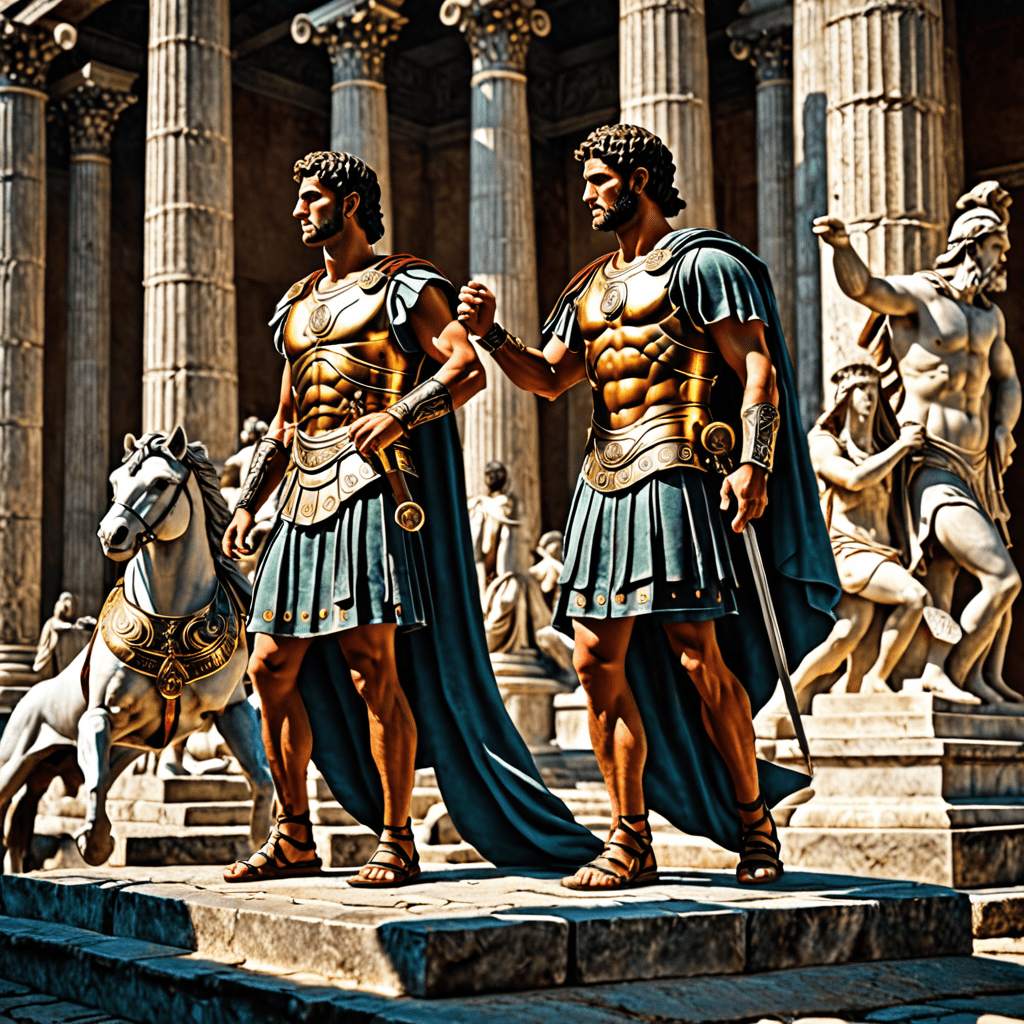Forged in Myth: The Secrets Behind History’s Most Powerful Weapons
1. Introduction: The Intersection of Myth and History
Throughout history, the intersection of myth and reality has played a pivotal role in shaping narratives around powerful weapons. These weapons often embody the cultural and national identity of civilizations, transcending their functional purpose to become symbols of strength, honor, and destiny. From ancient swords to modern firearms, the stories woven around these arms reveal much about the societies that created them and the myths they embraced.
2. Legendary Weapons of Antiquity
In many cultures, legendary weapons have emerged as icons of power and prestige, often imbued with magical properties or significant historical weight.
- The Sword of Excalibur: This iconic weapon is not just a sword; it is a symbol of kingship and destiny in Arthurian legend. Forged in the mystical realm, Excalibur represents rightful sovereignty and the divine right to rule, making it a centerpiece of British folklore.
- The Bow of Odysseus: In Homer’s epic, the bow signifies craftsmanship and the hero’s rightful place as the king of Ithaca. Its uniqueness lies in its construction, which represents the ingenuity of human skill and the importance of identity and legacy.
- The Spear of Destiny: Allegedly used to pierce the side of Christ, this spear is surrounded by numerous historical claims and mystical powers. Many believe its possession grants invincibility, making it a sought-after relic throughout history.
3. The Art of Weapon Forging in Ancient Cultures
Ancient cultures took great pride in their weapon forging techniques, which were often shrouded in tradition and mystique.
- Techniques and Materials: Ancient blacksmiths utilized various materials, including bronze, iron, and steel, employing techniques like quenching and tempering to create durable weapons.
- The Role of Blacksmiths: Blacksmiths were revered figures in their communities, often seen as intermediaries between the physical and spiritual worlds, responsible for crafting tools of warfare that were also imbued with protective powers.
- Spiritual Beliefs: Many cultures believed that the act of forging weapons was a sacred ritual, invoking blessings from deities to ensure the weapons’ effectiveness in battle.
4. The Tale of the Samurai Sword: Katana as a Cultural Icon
The katana is not merely a weapon; it is a representation of the samurai’s way of life, embodying honor and skill.
- History and Craftsmanship: The katana’s production involves meticulous processes, including folding steel to create a resilient blade, symbolizing the samurai’s dedication to their craft.
- Symbolism in Japanese Culture: The katana is often seen as the soul of the samurai, representing their loyalty, honor, and the warrior spirit.
- Famous Swords: Legendary swords such as Masamune and Muramasa have their own myths, often associated with supernatural abilities and renowned historical figures.
5. Myths and Facts: The Role of Weapons in Warfare
Weapons have played critical roles in legendary battles, often becoming symbols of the conflicts themselves.
- Legendary Battles: Weapons like the Greek phalanx spear and the longbow at the Battle of Agincourt have become synonymous with their respective conflicts, illustrating the importance of technology in warfare.
- Shaping Perception: Myths surrounding these weapons often exaggerated their capabilities, creating a perception that influenced military strategies and morale.
- Case Studies: The Trojan War’s use of the wooden horse and the longbow’s effectiveness at Agincourt serve as prime examples of how weaponry can alter the course of history.
6. The Alchemy of Power: Weapons of the Middle Ages
The Middle Ages was a time rich with myths surrounding weapon creation and their perceived powers.
- Myths of Creation: The knight’s sword was often said to be forged with the power of alchemy, granting its wielder invincibility and unmatched prowess in battle.
- Significance of the Crossbow: This weapon revolutionized warfare, often depicted in legends as a tool of the underdog, changing the dynamics of battle.
- Alchemy’s Role: The quest for creating the perfect weapon was often intertwined with alchemical practices, leading to the belief in mystical properties that extended beyond the physical.
7. Firearms and Folklore: The Evolution of Modern Weapons
As warfare evolved, so did its weapons, leading to a new era filled with myths surrounding firearms.
- Transition to Ranged Weaponry: The advent of firearms marked a significant shift from melee combat, with legends often romanticizing the power and accuracy of these new weapons.
- Legendary Firearms: Weapons such as the Winchester rifle and the Colt revolver have taken on mythological status, often associated with iconic figures in American folklore.
- Impact on Warfare: Firearms transformed not just military tactics but also societal structures, leading to myths about their role in shaping nations.
8. The Influence of Literature and Media on Weapon Myths
Literature, film, and video games have perpetuated and reshaped the myths surrounding legendary weapons.
- Perpetuation of Myths: Iconic works like The Lord of the Rings and Game of Thrones feature legendary weapons that have become cultural touchstones.
- Analysis of Key Works: These narratives often imbue weapons with extraordinary powers, affecting how modern audiences perceive historical arms.
- Impact on Perceptions: The representation of weapons in media has influenced public understanding of their historical significance and mythological aspects.
9. The Psychological Impact of Legendary Weapons
Mythologized weapons have a profound effect on cultural narratives and individual identities.
- Shaping Hero Narratives: Legendary weapons often serve as extensions of their wielders, embodying their virtues and flaws, thus enhancing the hero’s journey.
- Morale and Identity: The possession of a legendary weapon can elevate the morale of troops and instill a sense of identity and purpose within cultures.
- Case Studies: The role of weapons such as Captain America’s shield in contemporary narratives showcases how mythologized arms can influence modern conflicts and identities.
10. Conclusion: The Legacy of Mythical Weapons
The legacy of mythical weapons transcends their physical forms, embedding themselves into the cultural consciousness of societies. They are not merely tools of war; they are symbols of power, heritage, and identity, continuing to inspire and intrigue generations. As we explore the intersection of myth and history, we uncover the truths and tales that have forged not just weapons, but the very essence of human civilization.



